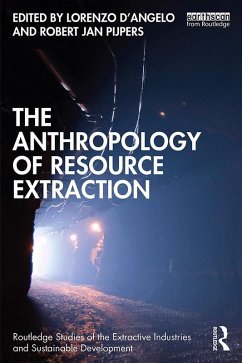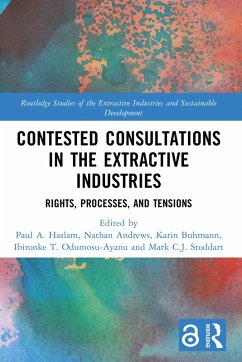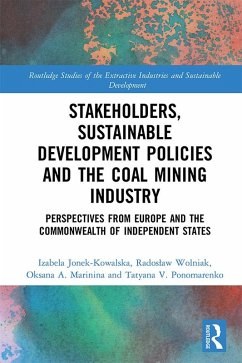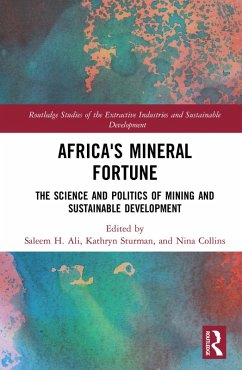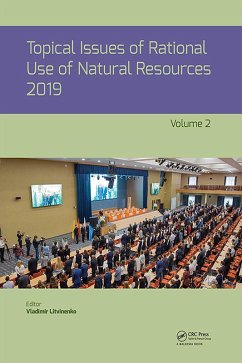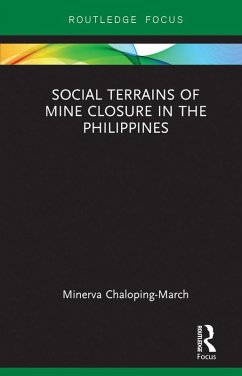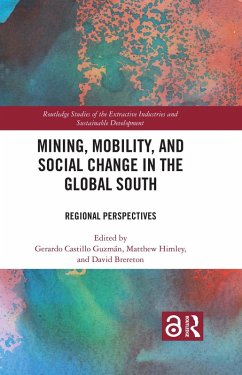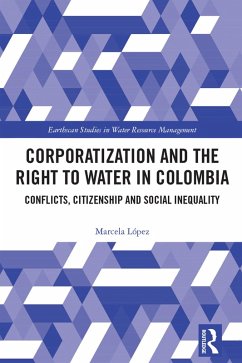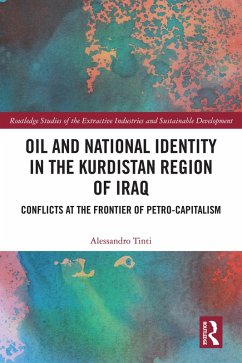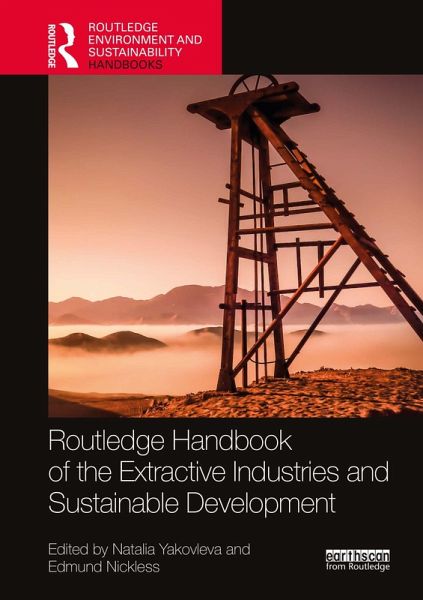
Routledge Handbook of the Extractive Industries and Sustainable Development (eBook, ePUB)
Versandkostenfrei!
Sofort per Download lieferbar
43,95 €
inkl. MwSt.
Weitere Ausgaben:

PAYBACK Punkte
22 °P sammeln!
The Routledge Handbook of the Extractive Industries and Sustainable Development provides a cutting-edge, comprehensive overview of current trends, challenges and opportunities for metal and mineral production and use, in the context of climate change and the United Nations Sustainable Development Agenda 2030.Minerals and metals are used throughout the world in manufacturing, construction, infrastructure, production of electronics and consumer goods. Alongside this widespread use, extraction and processing of mineral resources take place in almost every nation at varying scales, both in develop...
The Routledge Handbook of the Extractive Industries and Sustainable Development provides a cutting-edge, comprehensive overview of current trends, challenges and opportunities for metal and mineral production and use, in the context of climate change and the United Nations Sustainable Development Agenda 2030.
Minerals and metals are used throughout the world in manufacturing, construction, infrastructure, production of electronics and consumer goods. Alongside this widespread use, extraction and processing of mineral resources take place in almost every nation at varying scales, both in developing countries and major developed nations. The chapters in this interdisciplinary handbook examine the international governance mechanisms regulating social, environmental and economic implications of mineral resource extraction and use. The original contributions, from a range of scholars, examine the relevance of the mining industry to the United Nations Sustainable Development Goals (SDGs), reviewing important themes such as local communities Indigenous peoples, gender equality and fair trade, showing how mining can influence global sustainable development. The chapters are organised into three sections: Global Trends in Mineral Resources Consumption and Production; Technology, Minerals and Sustainable Development; and Management of Social, Environmental and Economic Issues in the Mining Industry.
This handbook will serve as an important resource for students and researchers of geology, geography, earth science, environmental studies, engineering, international development, sustainable development and business management, among others. It will also be of interest to professionals in governmental, international and non-governmental organisations that are working on issues of resource governance, environmental protection and social justice.
Minerals and metals are used throughout the world in manufacturing, construction, infrastructure, production of electronics and consumer goods. Alongside this widespread use, extraction and processing of mineral resources take place in almost every nation at varying scales, both in developing countries and major developed nations. The chapters in this interdisciplinary handbook examine the international governance mechanisms regulating social, environmental and economic implications of mineral resource extraction and use. The original contributions, from a range of scholars, examine the relevance of the mining industry to the United Nations Sustainable Development Goals (SDGs), reviewing important themes such as local communities Indigenous peoples, gender equality and fair trade, showing how mining can influence global sustainable development. The chapters are organised into three sections: Global Trends in Mineral Resources Consumption and Production; Technology, Minerals and Sustainable Development; and Management of Social, Environmental and Economic Issues in the Mining Industry.
This handbook will serve as an important resource for students and researchers of geology, geography, earth science, environmental studies, engineering, international development, sustainable development and business management, among others. It will also be of interest to professionals in governmental, international and non-governmental organisations that are working on issues of resource governance, environmental protection and social justice.
Dieser Download kann aus rechtlichen Gründen nur mit Rechnungsadresse in A, B, BG, CY, CZ, D, DK, EW, E, FIN, F, GR, HR, H, IRL, I, LT, L, LR, M, NL, PL, P, R, S, SLO, SK ausgeliefert werden.





